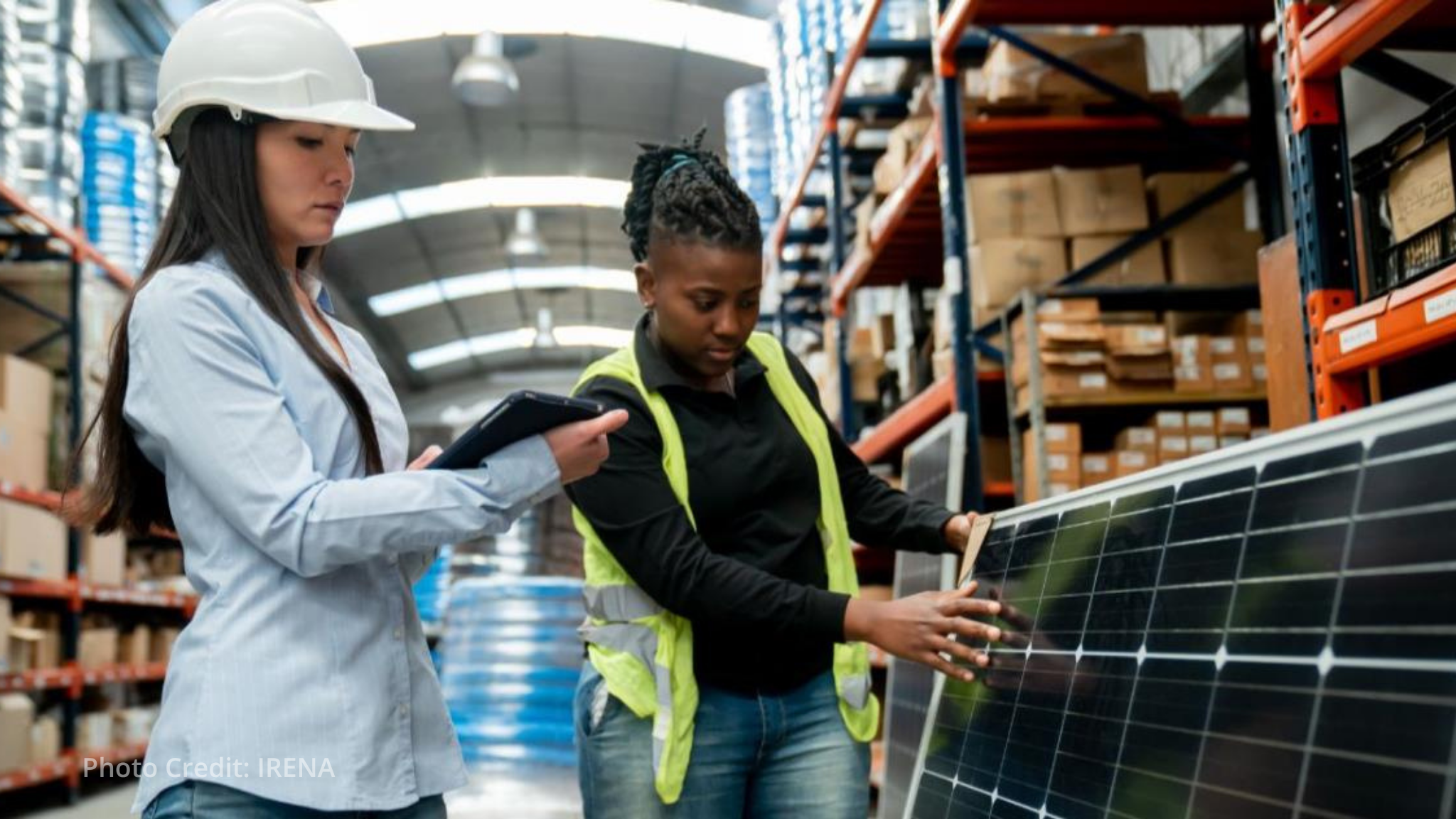Women still hold just 32% of full-time jobs in renewable energy, the same share as six years ago despite the sector’s rapid growth, the International Renewable Energy Agency (IRENA) found in a new study. The percentage hasn’t budged since IRENA’s first gender analysis in 2019, showing no meaningful progress in women’s representation over the years.
While renewable energy performs better than fossil fuel industries, the lack of advancement raises concerns about labor shortages and missing diverse perspectives as the sector expands. The report warns that without greater gender equality, the energy transition won’t be fair or sustainable. IRENA’s second edition of “Renewable Energy: A Gender Perspective” provides the most detailed assessment to date of barriers women face in clean energy careers.
The gender gaps get worse as jobs become more senior or technical. Women account for only 19% of senior leadership positions, the widest disparity in the sector. They’re better represented in administrative roles at 45% but drop to 28% in science, technology, engineering, and math positions. The lowest representation comes in trades like installation, machine operation, and construction work, where women hold just 22% of jobs that typically require technical certifications or vocational training. These patterns reflect systemic barriers that persist throughout women’s professional development in the energy sector.
IRENA Director-General Francesco La Camera said “advancing gender equality in the renewable energy sector depends on robust data, targeted policy interventions and active collaboration of all stakeholders.” He noted that despite performing better than fossil fuel industries, “the sector still has a lot of work to do” and women “must be recognized as equal partners and leaders in shaping the renewables-based future.” The type of organization makes a huge difference – private enterprises that dominate renewables report the lowest female participation at 25%, while non-governmental organizations reach nearly 48% and government institutions hit 37%.
Women face bias and cultural stereotypes when entering the workforce, struggle to balance professional and caregiving responsibilities, and encounter discriminatory practices that block advancement to leadership roles. The report notes that women are often the primary users and managers of household energy systems, bearing the greatest burden of energy poverty, especially in developing countries. In NGOs focused on off-grid and community projects, women make up about 35% of employees, highlighting potential to expand their leadership in advancing universal energy access goals.
The study calls for comprehensive strategies including government enforcement of non-discrimination laws and equal pay, plus embedding gender equality into climate and energy policies. Employers need flexible work arrangements, transparent recruitment and promotion practices, mentorship programs, and safe workplaces. Educational institutions, trade unions, civil society groups, and international organizations must help dismantle stereotypes and expand opportunities while holding institutions accountable for real progress on gender balance.

